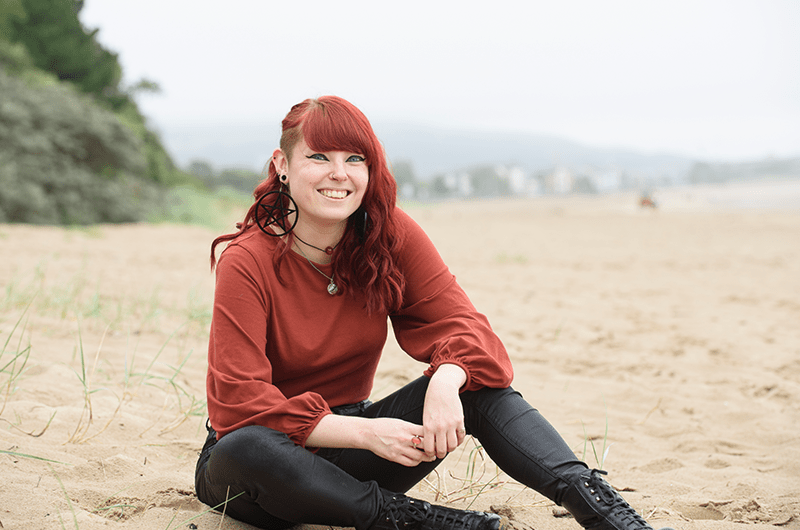Olivia Kinsman was able to take up a place at the University of Bristol this year having been awarded the Keil Scholarship, which supports PhD students in the Department of History.
I can remember taking my A-levels and knowing how much I wanted to go to university. Even then I knew that eventually I wanted to do a PhD. I’m from a single parent household with a low income and there are lots of us in the family, so growing up was really challenging at times. I’ve always been determined that I wasn’t going to let my background or finances get in the way of what I wanted to do – even if that meant saving up until I was 50 to do my PhD. For me, applying for scholarships and being proactive about reaching out for financial assistance has been really important.
Finding out that I’d been awarded the Keil Scholarship was surreal. I was working in a temporary job at the time and when I saw the email come through, I ran out straight away and called my partner. I had reluctantly accepted that, for the time being, I couldn’t afford a PhD, so when I found out I’d been given this incredible opportunity I just couldn’t believe it. After it had properly sunk in, I just felt so grateful, motivated and excited to get started.
I’ve always been interested in religion, spirituality and the ancient world. I’m especially intrigued by the way in which ancient religions are interpreted and revived by modern day worshippers. It’s what drew me to my PhD thesis, which explores how the worship of ancient Mediterranean Goddesses is being reconstructed and innovated in 21st century Goddess Spirituality. This modern-day movement is both spiritually and politically motivated – and deeply rooted in feminism. Its members have a wide range of beliefs, but central to their spirituality is the interpretation of the divine as a predominantly female force.
It’s the gift of a different type of life for someone who wouldn’t have had that chance.
Through my thesis, I want to find out more about who these Goddess devotees are and understand how they learn about the ancient past – whether that’s through scholarly sources, social media or blogs.
I feel as an academic, it’s important for us to know how our research is (and isn’t) being interpreted and distributed. I knew Bristol would be the perfect place for me to carry out this research, because my supervisors, Professor Ronald Hutton and Dr Genevieve Lively, are so influential and well respected in their fields. Bristol really offered me the opportunity to study in a wonderful location with the ideal supervisors.
My scholarship has helped to cover practical things, like food and travel to the University. It’s also allowed me to undertake training, which will help me with my research. For example, I recently went on an oral history training course which will be really useful when it comes to interviewing people for my thesis. Crucially, it also helps me to pay for books and study resources – which for my area of study can be fairly niche.
Scholarships like the ones created by the Keil family make education accessible to people who otherwise would be shut out. This scholarship is so much more than a practical means to an end – it’s the gift of a different type of life for someone who wouldn’t have had that chance. I’ve been really inspired by that and I hope that one day I’ll be able to carry on the Keil family legacy by passing down that opportunity to another student like me.
Mrs Teresa Keil has continued The Keil Scholarship in memory of her husband Dr Ian Keil (BA 1955, PhD 1965), who originally established the Scholarship. Ian was awarded a PhD studentship at Bristol himself n the 1960s. The scholarship has been helping students for over a decade and honours the Keils’ lifelong love of education and Ian’s passion for his subject. Both Ian and Teresa included gifts in their Wills for Bristol to ensure that this impact continues.

